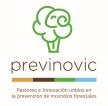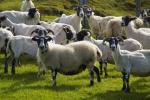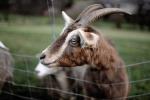LACTOSE-FREE CHEESE Operational Group: Production of artisanal lactose-free sheep and goat cheeses
- Type Operational group
- Status Filled
- Execution 2018 -2021
- Assigned Budget 164.733,33 €
- Scope Autonómico
- Autonomous community Madrid, Comunidad de
- Main source of financing CAP 2014-2020
The production of lactose-free milk and dairy products (yogurt, kefir, and ice cream) has been developed. Lactose-free cheese and other dairy products are available on the market, but artisanal production of lactose-free cheese and dairy products made solely with sheep or goat milk is rare. The products are highly sensorial and well received by consumers. Thus, they can be consumed by people with lactose intolerance, expanding the range of products available.
In addition, the lactose content of cheeses with different ripening periods has been characterized. Using a spectrophotometric methodology, the lactose content of semi-cured, cured, and aged sheep cheeses was found to be below 1%, allowing them to be classified as "Low Lactose" food products. To ensure a lactose content of less than 0.01%, as required by regulations for products labeled "Lactose-Free," the milk must be pretreated with the enzyme lactase.
Spreadable creams made from matured goat and sheep milk cheese have been developed to increase the competitiveness of farms by expanding the range of high-value products, allowing the use of long-aged cheeses that have suffered a defect during maturation that prevents them from being sold as a whole piece. Reusing these cheeses allows for more sustainable management and greater economic returns for the products produced in cheese industries. Artisanal sheep and goat milk ice creams expand the range of products available to consumers.
There is a niche market for quality lactose-free artisan cheeses in Spain, especially in the Community of Madrid. This niche market is based on many consumers' rejection of dairy products for health reasons. The problem of lactose intolerance, which is real and affects a portion of the population, and the opinion, unsupported by scientific evidence, that dairy products are harmful to health. Furthermore, there is a lack of information about the lactose content of matured sheep and goat cheeses.
Due to the pandemic and crisis resulting from COVID-19, several objectives and tasks associated with this project were severely affected. Some had to be canceled, while others were reformulated and adapted. The work program included the execution of technical tasks for evaluating the sensory properties of lactose-free goat and sheep yogurt and kefir, as well as consumer studies on lactose-free goat and sheep yogurt and kefir. Tastings for the sensory and hedonic evaluation of the developed products by trained judges and consumers have been temporarily suspended due to a safety protocol. These analyses have been delayed and are currently being addressed.
IMIDRA has developed a tasting protocol tailored to the recommendations established by the Ministry of Health to minimize the risk of infection. Participation in scientific outreach events and fairs, meetings of the Governing Body (GO), events to present results, and participation in scientific conferences were also drastically reduced.
- Optimization of the protocol for obtaining lactose-free milk using enzymatic methods.
- Production of fresh lactose-free sheep and goat cheeses, physical-chemical, microbiological, and sensory evaluation. Production of lactose-free yogurt and kefir.
- Study of lactose content at different ripening stages of goat and sheep cheeses. Outreach events (May 20-23, 2021).
- Development of ice cream from sheep's milk.
The General Objective (GO) was to develop lactose-free artisan sheep and goat cheeses in the Community of Madrid (GO).
The partial objectives were to make lactose-free artisan sheep and goat cheeses available to consumers (OP1), to contribute to understanding the evolution of the lactose content of cheeses throughout the maturation process (OP2), to influence innovation as the best strategy for the profitability of livestock farms and companies processing livestock products (OP3) and to demonstrate that collaboration between artisan cheese factories in technological innovation projects may be the best strategy to solve problems that affect the entire sector (OP4).
- Coordinator/entity name: Eugenio José Miguel Casado (IMIDRA)
- Postal address: "El Encín" Estate. N-II Road, Km. 38,200. PO Box 127 (28800) Alcalá de Henares
- Coordinator/entity email: eugenio.miguel@madrid.org
- Telephone: 918879410
- Eugenio José Miguel Casado (IMIDRA)
- S.A.T. Vega de San Martín (info@vegadesanmartin.es)
- Gestión Ganadera y Genética GANATEC S.L. (marques@marquesnet.com)
- Eugenio José Miguel Casado (IMIDRA)






